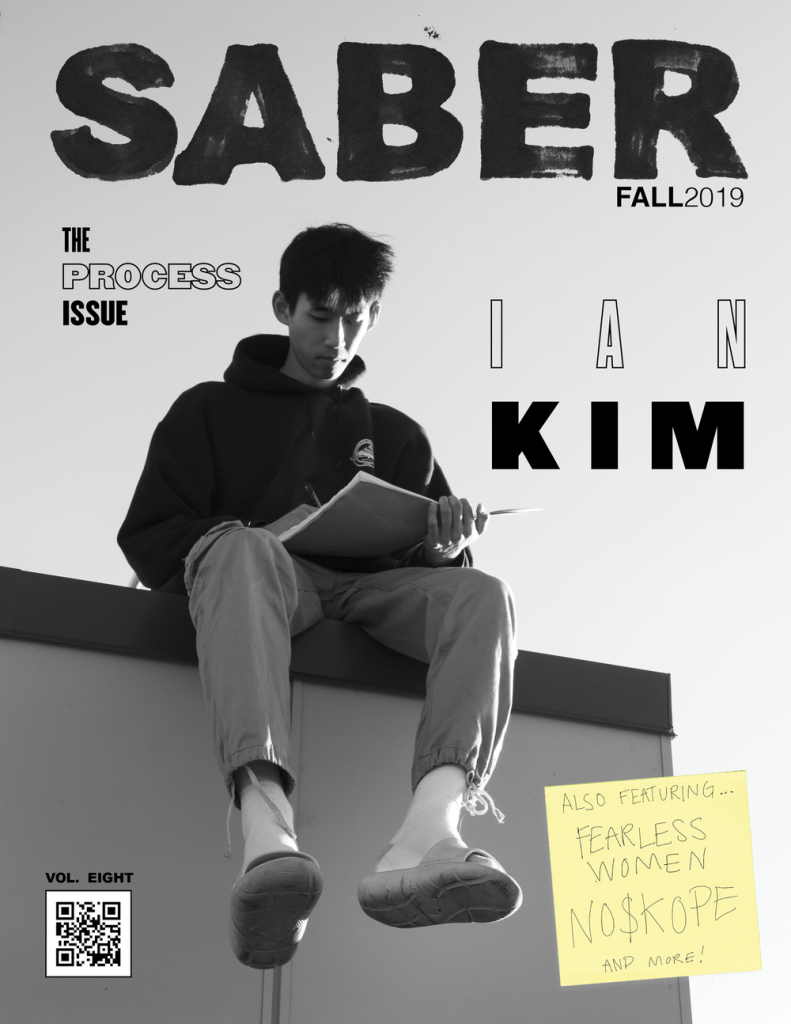Today’s issue is 900 words, a 7–minute read.
Isabella and Helene talk Black History Month, SABER Magazine, The Green Room, The Grammys, and what’s behind Imposter Syndrome.
Continue reading to find out more…
Happy Black History Month, NewPrensa readers.
Helene here! In this month’s next several editions, we want to celebrate and uplift Black creatives, activists, politicians, community members, thinkers, do-ers. Do you have a story you’d like us to highlight? Let us know at newprensa@newpublica.com. One small update from the NewPrensa team is that we now have a playlist! Members of our team are going to be updating the playlist every other week with what we’re listening to. We’ve all got very different tastes, so there’s sure to be something for everyone. We hope you like it. We know we do!

Do you know SABER Magazine? I first heard of them in July of 2019, when they hosted a release event for their 7th edition above Cal Surf in Uptown. They are (from their website) an “independent, Black-owned media company that focuses on discovery & community”. For a while, that community was Minneapolis. Now, they’ve moved to Kansas City, MO when founder Andres Nelso relocated after graduating from the Minneapolis College of Art and Design. SABER Mag is a collection of photography, community, writing, and events that has morphed over the years. They started out with a seasonal print magazine (which you can now find online here, for purchase), but that was only for 2019. Now, they’ve expanded to have a larger online presence, and they’ve introduced :some sports commentary. Their work has always been super relevant and well curated. You should check them out, even if they aren’t directly involved in Minneapolis anymore.

Closer to home, a new music venue! The live music scene of the Twin Cities rejoices! The Green Room had their first show on January 28th, which featured the local artists Gully Boys, Scrunchies, FènixDion and Denim Matriarch as well as singer-songwriter Colin Bracewell. Owner and founder Tanner Montague sees the venue as a way for smaller artists to make some good money from their shows. They’re open to all artists and genres, and will hopefully fill a hole in the music scene of the cities, especially after the permanent closing in 2017 of the Triple Rock Social Club and the temporary closure of many others during the height of the pandemic. I’m excited to check them out!

Hello, Isabella here.
The 2023 65th Grammy Awards were interesting last weekend. Bad Bunny opened the award show with a spectacular Boricua performance. A bomba-merengue style performance filled with dancers who invited the crowd to join in on a large Latinx celebratory experience. He performed “El Apagon” (The Blackout) and “Después de la Playa” (After the Beach). The biggest controversy about the performance was CBS’ subtitles. While Bad Bunny sang, the Tv broadcasting company wrote “[SPEAKING NON-ENGLISH]”. The singer calls the award show the “Gringo Grammys”. The Grammy has awarded a majority of white male artists – wink-wink “People like me,” Harry Styles – but Latinx award winners aren’t many. This has upset many in the Latinx community because they could have subtitled “[SINGING IN SPANISH]” , knowing he is a Latino, Spanish-speaking performer. It becomes dismissive and belittling, and is a very eurocentric perspective, to a community that consists of 62.6 million of the U.S. population (18.9%), according to 2021 Census Annual Estimates. Nonetheless, Bad Bunny was extremely thankful for the opportunity to perform at the 2023 65th Grammys on his instagram.

Is it Imposter Syndrome or is it a systemic disadvantage? Oftentimes, imposter syndrome is associated with the feeling of self-doubt, not being enough, or not fitting the part. For many, it’s not feeling worthy of the success that you know you’re capable of. The fear holds you back. Leslie Jamison expanded on the meaning of imposter syndrome in an article for The New Yorker. She speaks about where it stems from and how it plays in society’s far wide use of the term. I bring this topic to you today, NewPrensa readers, because of a big point Jamison makes in the article: is it real if everyone has it? Or, has the diagnosis become “a cultural force fortifying the very phenomenon it was supposed to cure.” It’s been referred to as a “white lady problem” but this term only appears as it tries to understand the position of women of color in professional fields. It is not an issue of lack of confidence but, instead, it’s an issue in the workplace where there is gender bias and systemic racism. Not only does it connect to systemic issues but it also relates to the capitalistic culture of striving for success, according to Australian scholar and critic Rebecca Harkins-Cross.
Jamison concludes that imposter syndrome reconciles “three aspects of our personhood: how we experience ourselves, how we present ourselves to the world, and how the world reflects that self back to us.” At the end of the day, it isn’t a syndrome. It is part of living life, according to Jamison. The focus should rely on the repair of systemic issues.
Is this true for you? Let us know at newprensa@newpublica.com or on Instagram @newprensa
That’s all for today! Remember to tune in to our new bi-weekly playlist.
Isabella and Helene

We’re Communications Specialists by day
and making valentines for our sweeties by night!
Do you enjoy reading NewPrensa?
Forward it to someone you think may enjoy it too!
Got suggestions, feedback, or a good scoop?
Send it to us at newprensa@newpublica.com
If someone sent this newsletter your way, feel free to subscribe to get local, BIPOC news delivered to your inbox every Thursday morning.



